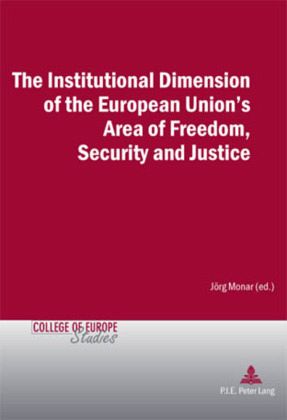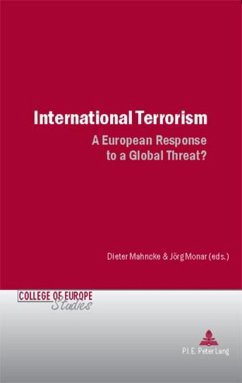
The Institutional Dimension of the European Union's Area of Freedom, Security and Justice
Versandkostenfrei!
Versandfertig in 6-10 Tagen
57,75 €
inkl. MwSt.

PAYBACK Punkte
0 °P sammeln!
Since the Treaty of Amsterdam (1999) the European Union's «Area of freedom, security and justice» (AFSJ) has become one of the most dynamic and fastest expanding European policy-making domains. With objectives such as enhanced internal security, a better management of migration challenges and improved access to justice the AFSJ addresses some fundamental concerns of European citizens. The institutions of the Union have to deliver on these objectives - and this book provides the first comprehensive analysis of how they have reacted and adapted to the specific challenges of the construction of...
Since the Treaty of Amsterdam (1999) the European Union's «Area of freedom, security and justice» (AFSJ) has become one of the most dynamic and fastest expanding European policy-making domains.
With objectives such as enhanced internal security, a better management of migration challenges and improved access to justice the AFSJ addresses some fundamental concerns of European citizens.
The institutions of the Union have to deliver on these objectives - and this book provides the first comprehensive analysis of how they have reacted and adapted to the specific challenges of the construction of the AFSJ. It covers all of the major Union institutions as well as the special agencies set up for police, judicial and border cooperation purposes.
The book brings out the dynamics of institutional change and their impact on policymaking, taking into account also the new prospects offered by the 2009 Treaty of Lisbon reforms.
With objectives such as enhanced internal security, a better management of migration challenges and improved access to justice the AFSJ addresses some fundamental concerns of European citizens.
The institutions of the Union have to deliver on these objectives - and this book provides the first comprehensive analysis of how they have reacted and adapted to the specific challenges of the construction of the AFSJ. It covers all of the major Union institutions as well as the special agencies set up for police, judicial and border cooperation purposes.
The book brings out the dynamics of institutional change and their impact on policymaking, taking into account also the new prospects offered by the 2009 Treaty of Lisbon reforms.












